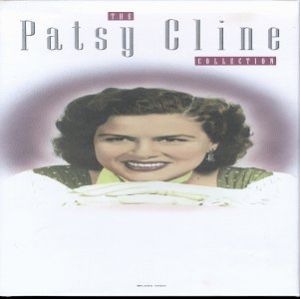
- Format: MP3

If an artist ever deserved a box set chronicling her entire career, it is Patsy Cline. Having recorded 102 sides between 1955 and her death at the age of 30 in 1963, Cline changed not only country music forever, but affected the world of pop as well. Over four CDs, arranged chronologically, the listener gets treated to a story in the development and maturation of a cultural icon who was at least, in terms of her gift, the equal of her legend. Discs one and two document the recordings Cline made for the 4 Star label between 1955 and 1960. Here are not only the roots and branches of Cline as a song stylist, but also the full arrival of the artist. Cline recorded honky tonk, gospel, some bluegrass, and country standards as well as some awe-inspiring rockabilly. Her voice takes the heart of each song, bends it to her emotional will, and transforms it into a vehicle for the listener to carry within herself. Some of the songs here are radio transcriptions that were tacked onto singles as B-sides, while others are alternate takes, but the vast majority were officially released tracks. Along with a 1954 radio transcription of Cliff Grimsley's honky tonk boogie number "Walking the Dog" is a live version of J.D. Miller's classic "It Wasn't God Who Made Honky Tonk Angels" from the same program. But the rockabilly of Sammy Masters' "Turn the Cards Slowly" from 1955 is a wooly departure. In early 1956, Cline scored "I Don't Wanna," with her mature style making its first impression on wax. "Stop Look & Listen" was another venture into rockabilly that would not have been out of place on a Johnny Burnette or Gene Vincent record. But only a few months later Cline was in the studio recording the definitive version of Webb Pierce's "Yes, I Know Why." The initial version of "Walking After Midnight" with its lazy, swinging Western stroll that shuffled slowly enough for a Bob Wills tune and was gutsy enough to be a slow rockabilly number was recorded the same year. From here to end of disc one, the tracks become more and more consistent while the voice takes more and more chances with its prowess and emotional range. "Try Again," from April of 1957, is so lush it could have been rearranged by Nelson Riddle. So smooth and beautiful is the tune, it left a lot of country fans at the time scratching their heads. Disc two, which documents 1958-1960, offers the listener Cline completing her restless transition from a country singer who experimented with different styles to a vocalist who mastered any type of music she set her voice to sing. Here are the tracks like "Crazy Dreams," "Loose Talk," "I Fall to Pieces," "San Antonio Rose," "Lovesick Blues," "Gotta Lotta Rhythm in My Soul," and the amazingly unheard "How Can I Face Tomorrow." The third disc, which charts her transition to Decca Records, is comprised of some of the greatest torch songs released between 1961 and 1962, among them "Crazy," "Have You Ever Been Lonely," "You Made Me Love You," the single version of "Walkin' After Midnight" that became an international smash, and the haunting "That's My Desire." Finally, in the last year and a half of her life, Cline had become a singer that other writers sought out. There are the single and radio transcription versions of "Leavin' on Your Mind," a rollicking read of "Blue Moon of Kentucky" (that blows Elvis' away), "Always," "Crazy Arms," "He Called Me Baby," "Sweet Dreams (Of You)," and the last track she ever cut, "Just a Closer Walk With Thee." Eerie, isn't it? In addition to the 102 tracks here is a booklet packed with photos, complete session notes, interviews with surviving Grand Ole Opry members, a reprint of the Nashville Banner's front page reporting the fatal crash that killed Cline, Cowboy Copas, Hawkshaw Hawkins, and others, and excellent liner notes by Paul Kingsbury of the Country Music Foundation. Indispensable, comprehensive, and not nearly enough.